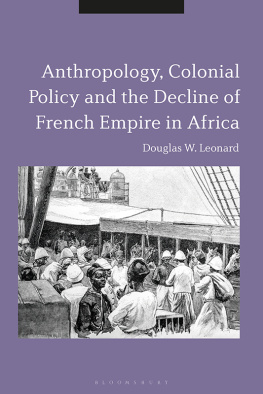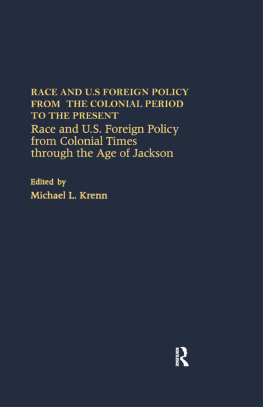First published in 1927 by Methuen & Co. Ltd.
This edition first published in 2018 by Routledge
2 Park Square, Milton Park, Abingdon, Oxon, OX14 4RN
and by Routledge
711 Third Avenue, New York, NY 10017
Routledge is an imprint of the Taylor & Francis Group, an informa business
1927 by Taylor & Francis
All rights reserved. No part of this book may be reprinted or reproduced or utilised in any form or by any electronic, mechanical, or other means, now known or hereafter invented, including photocopying and recording, or in any information storage or retrieval system, without permission in writing from the publishers.
Publisher's Note
The publisher has gone to great lengths to ensure the quality of this reprint but points out that some imperfections in the original copies may be apparent.
Disclaimer
The publisher has made every effort to trace copyright holders and welcomes correspondence from those they have been unable to contact.
A Library of Congress record exists under ISBN: 27020841
ISBN 13: 978-1-138-60261-8 (hbk)
ISBN 13: 978-0-429-46211-5 (ebk)
THIS volume, which I have called "The New Colonial Policy," incorporates material which has already been published in articles in the "Svenska Dagbladet" during recent years and which is now expanded and collated into a consistent whole. The book is intended as a continuation of my earlier work entitled "European Bankruptcy and Emigration." The purpose of the latter was to show that it was beyond the bounds of possibility to pay international war debts and to extort vast reparation sums from Germany, as was at first intended. In my opinion there existed no other rational solution than the organization of a considerable volume of emigration to transoceanic lands in order to create new markets for European exports. Only in this way was it possible to restore the economic equilibrium which existed before the war between Europe and the transoceanic continents. Since my last book was written the realization of the impossibility of accomplishing a full liquidation of war debts and reparations has been more commonly appreciated and great efforts have been made to arrive at a rational solution of the problem. The Dawes plan has been devised to solve the problem of German reparations, but the question of the regulation of international debts remains still in the main unsolved. Similarly it would appear extremely doubtful whether the large transfer of capital to various countries, as contemplated by the Dawes plan, is feasible in practice. The Dawes plan may for a time disguise the general bankruptcy, and it may be presumed that at least for the time being it may produce one good effect: that of gradually educating future opinion in the knowledge that the payment of international debts and reparations is on the whole impracticable.
The important question of sufficient emigration from Europe to transoceanic lands remains as insoluble as ever. The purpose of this new book is primarily to bring up to date the account of the world position which was the foundation of my previous book. It also deals more exhaustively than the previous volume with the problem of European over-population. In the latter connection a number of other closely related questions are discussed, such as a more suitable distribution of the population of the earth over its various continents and the much discussed question of birth-control.
HELMER KEY
STOCKHOLM
May, 1927
Chapter I
The Poverty of Europe
The Economic Equilibrium between the Continents of the World
THE NEW COLONIAL POLICY
BEFORE the Great War there existed between the various continents a division of labour which favoured the economic progress of the world. In some respects this balance was perhaps more apparent than real, but the main thing was that people believed it to exist. Then, as now, there existed keen international competition, but it was not so devastating, and it had rather a stimulating effect on the productivity of the different countries.
One of the conditions precedent of this relative equilibrium in world economy was a constant emigration from Europe to oversea countries. Emigrants, mostly agricultural labourers, settled in suitable districts and contributed to the increased production of the raw materials and foodstuffs required by Europe, and exchanged for the products of European industry. The consequence was that the price of oversea goods gradually fell, but not so far as to make continued production unprofitable. The buying power of the oversea countries increased and rendered possible an increased consumption of the products of European industry.
Here and there, it is true, industries grew up on a more or less modest scale in oversea countries, but with the exception of the U.S.A., which occupies a special position, these new industries did not seriously compete with European goods, which were of better quality and in greater demand in proportion as prosperity increased and civilization advanced among the colonists and coloured races. This moderate industrialization of oversea countries had scarcely any other effect than to contribute to the raising of the standard of living in such countries, for example, as India, Japan, the Argentine, and Brazil. This in its turn tended to increase the effective demand of the world. In other words, equilibrium existed between the production of raw materials in the colonies and the steadily increasing output of European industry.
Since the war conditions have entirely changed. Purchasing power has been diminished throughout the world, with the exception of the U.S.A., and this is due to the fact that the equilibrium between production in Europe and in oversea countries, which was based on normal emigration from Europe, has been destroyed.
This disturbance has been intensified by the over-industrialization of Europe caused by the war and its aftermath, a process in which the essential feature is that factories in many important branches of industry have developed a technical capacity which far exceeds the demand for the goods which the world market can absorb.
In consequence the price of colonial raw material and foodstuffs rose at the same time as the price of European industrial products fell. European industry was compelled, therefore, at a time when demand was reduced, to work with dearer raw materials and higher costs of production, the latter as a result of a higher cost of living and higher real wages.
At first the inflation of paper currency in most European countries had a stimulating influence on industrial production, but it soon appeared that this was only a passing phase. The turnover appeared very great owing to high prices, but the increase in value did not correspond to any increase in quantity. On the contrary, the volume of world trade shrank considerably, and the shrinkage was world-wide.











